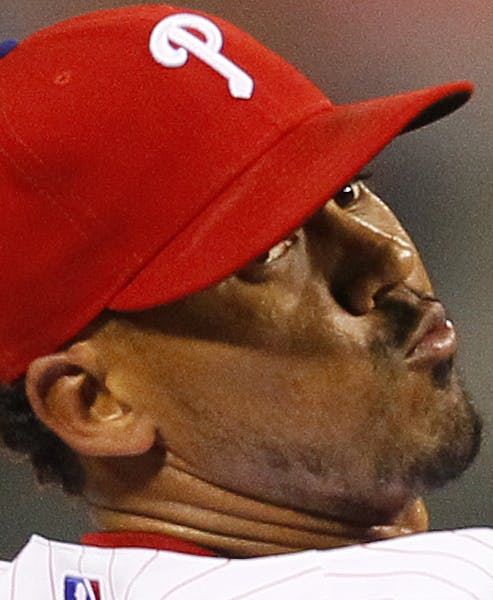Alex Rodriguez was among 13 players suspended by Major League Baseball on Monday for violating the league's anti-doping protocols, the biggest single-day drug action in the sport's history.
Rodriguez is planning to appeal his ban, which would begin Thursday and would be for 211 games, through the 2014 season — by far the longest levied by the league for a doping violation. The league cited his "use and possession of numerous forms of prohibited, performance-enhancing substances" over many years.
As baseball announced its unprecedented sanctions, Rodriguez, the New York Yankees' high-profile third baseman, was preparing to make his 2013 major league debut Monday night against the Chicago White Sox. Rodriguez, who has been recovering from hip surgery and a quadriceps strain, is eligible to play until his appeal is heard by an arbitrator, meaning he can probably play out the season with a lengthy possible ban looming.
In a news conference before the Yankees' game in Chicago, Rodriguez declined to discuss the suspension or accusations that he used banned substances, but he reiterated his intent to challenge the league's ruling.
"I'm not going to get into any of that today," he said. "What we've always fought for was for the process, and I think we have that and at some point we'll sit in front of an arbiter and give our case. And that's as much as I feel comfortable telling you right now."
Sidelined since hip surgery in January, Rodriguez rejoined the Yankees five hours after the suspension in a series opener in Chicago against the White Sox, playing third base and batting fourth. Booed loudly when he walked to the plate, Rodriguez blooped a single to left field in the second inning, flew out in the fourth and sixth and struck out looking in the eighth as the Yankees lost 8-1.
Once considered among the best players in the game, Rodriguez received a far stiffer penalty than the others cited by baseball on Monday, all accepting 50-game suspensions that effectively ended their 2013 seasons. Among the others were three 2013 All-Stars — Texas Rangers outfielder Nelson Cruz, San Diego Padres shortstop Everth Cabrera and Detroit Tigers shortstop Jhonny Peralta.
Also agreeing to 50-game bans were Yankees catcher Francisco Cervelli and outfielder Fernando Martinez; Philadelphia pitcher Antonio Bastardo, Seattle catcher Jesus Montero, New York Mets infielder Jordany Valdespin and outfielder Cesar Puello, Houston pitcher Sergio Escalona and free agent pitchers Fautino De Los Santos and Jordan Norberto.
The suspensions stem from the league's investigation into Biogenesis, a South Florida anti-aging clinic run by Anthony P. Bosch. With Bosch's cooperation, baseball claimed its biggest trophies in its fight against performance-enhancing drugs.
For the past six months, since The Miami New Times published its account of Bosch's providing drugs to professional athletes, including Rodriguez, baseball investigators have intensified their pursuit.
While the players' association has fought many drug penalties in the past three decades, attitudes of its membership have shifted sharply in recent years and union staff encouraged settlements in the Biogenesis probe.
Rodriguez is the only player planning to appeal, and the union's executive director, Michael Weiner, called his suspension "way too harsh."
"We've never had a 200-plus-[game] penalty for a player who may have used drugs, and you know, among other things I just think that is way out of line," Weiner said in a call with reporters.
Commissioner Bud Selig, however, said the suspension was within the bounds of the league's anti-doping rules, saying in a statement that baseball "conducted a thorough, aggressive investigation guided by facts so that we could justly enforce our rules."
The game's Joint Drug Agreement allows players to appeal suspensions in front of an independent arbitrator, Fredric Horowitz of Santa Monica, Calif. Rodriguez's case is expected to be heard within three weeks, but Horowitz isn't expected to rule until November or December at the earliest.
The 38-year-old superstar received the harshest penalty, MLB said, because he tried to impede its probe; used and possessed numerous illegal substances, including testosterone and human-growth hormone; and misled officials about his past drug use.
The Associated Press contributed to this report.
Anze Kopitar scores in overtime, Kings beat Oilers 5-4 in Game 2 to tie series
Defending champion Golden Knights beat Stars 3-1 to take 2-0 series lead home to Vegas

